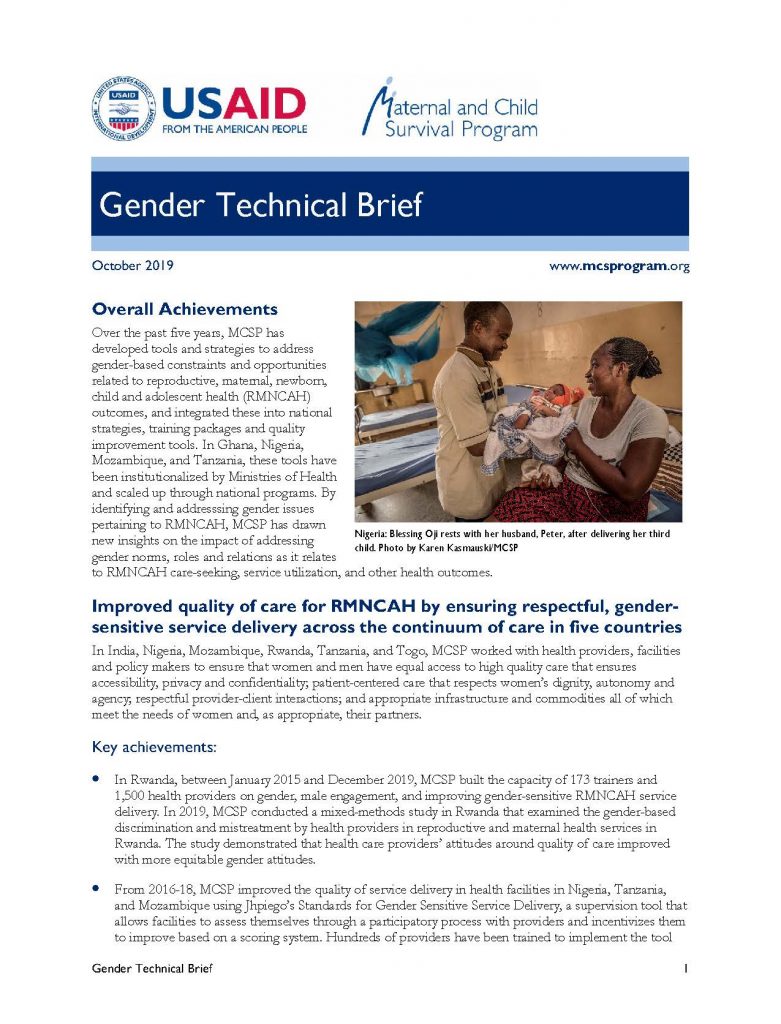
MCSP developed tools and strategies to address gender-based constraints and opportunities related to reproductive, maternal, newborn, child and adolescent health (RMNCAH) outcomes and integrated these into national strategies, training packages, and quality improvement tools. In Ghana, Nigeria, Mozambique and Tanzania, these tools have been institutionalized by ministries of health and scaled up through national programs. […]
Read More…
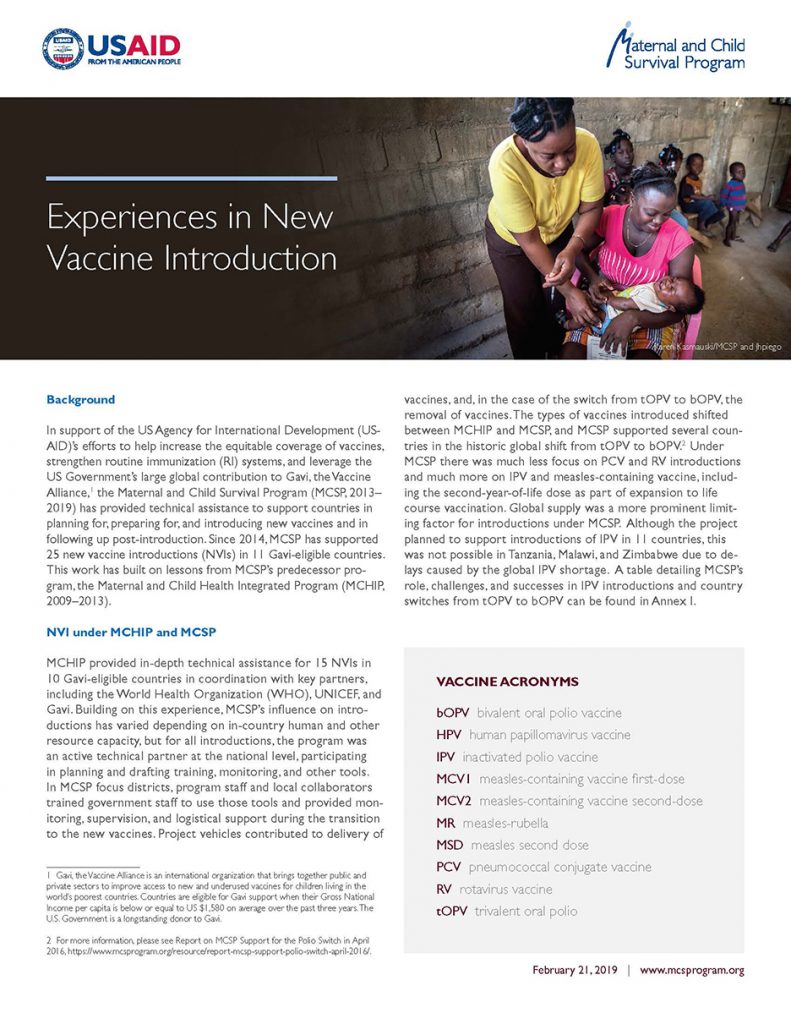
USAID’s efforts to help increase the equitable coverage of vaccines, strengthen routine immunization (RI) systems, and leverage the US Government’s large global contribution to Gavi, the Vaccine Alliance and MCSP has provided technical assistance to support countries in planning for, preparing for, and introducing new vaccines and in following up post-introduction. Since 2014, MCSP has […]
Read More…
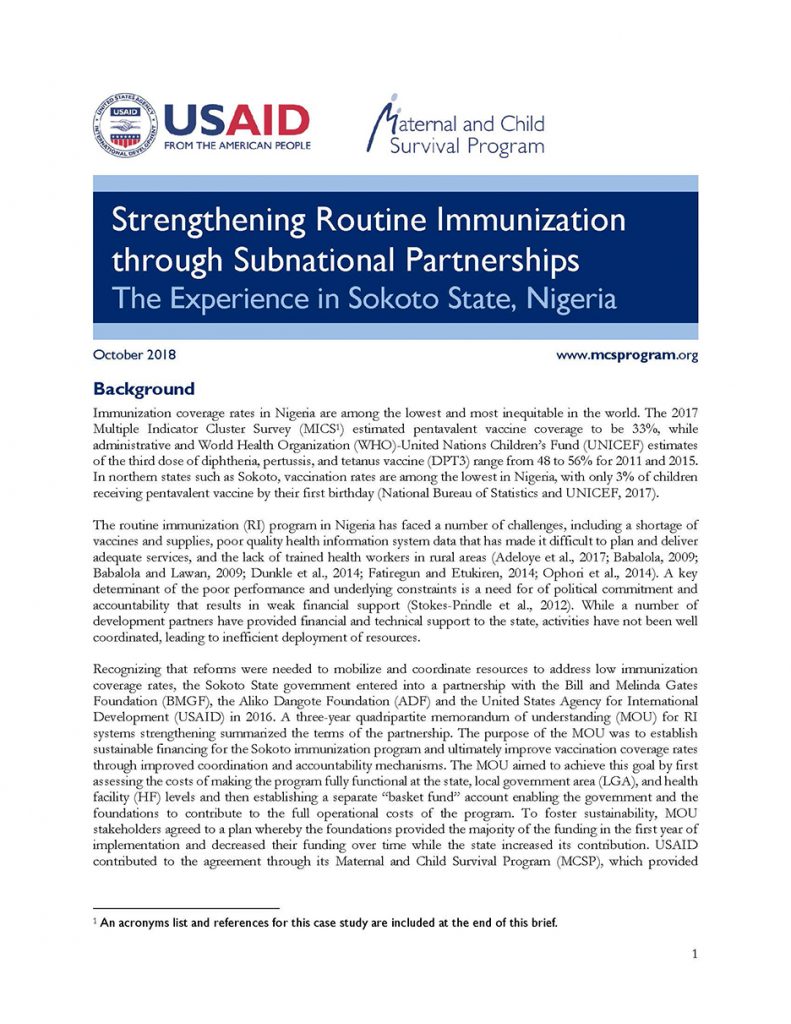
There is limited evidence on how partnerships can be used to improve health system performance at the subnational level. Therefore, the memorandum of understanding in Sokoto provides an opportunity to document a subnational partnership aimed at addressing systemic challenges facing the routine immunization program. The purpose of this case study is to describe the processes […]
Read More…
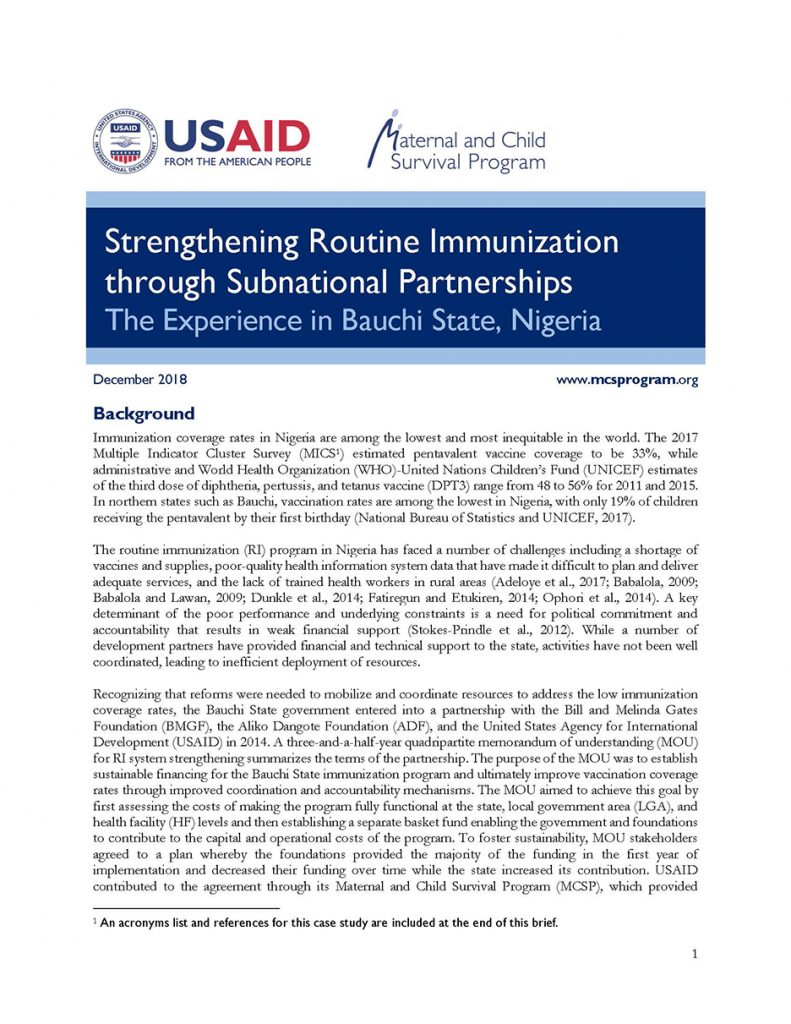
There is limited evidence on how partnerships can be used to improve health system performance at the subnational level. Therefore, the memorandum of understanding in Bauchi provides an opportunity to document a subnational partnership aimed at addressing systemic challenges facing the routine immunization program. The purpose of this case study is to describe the processes […]
Read More…
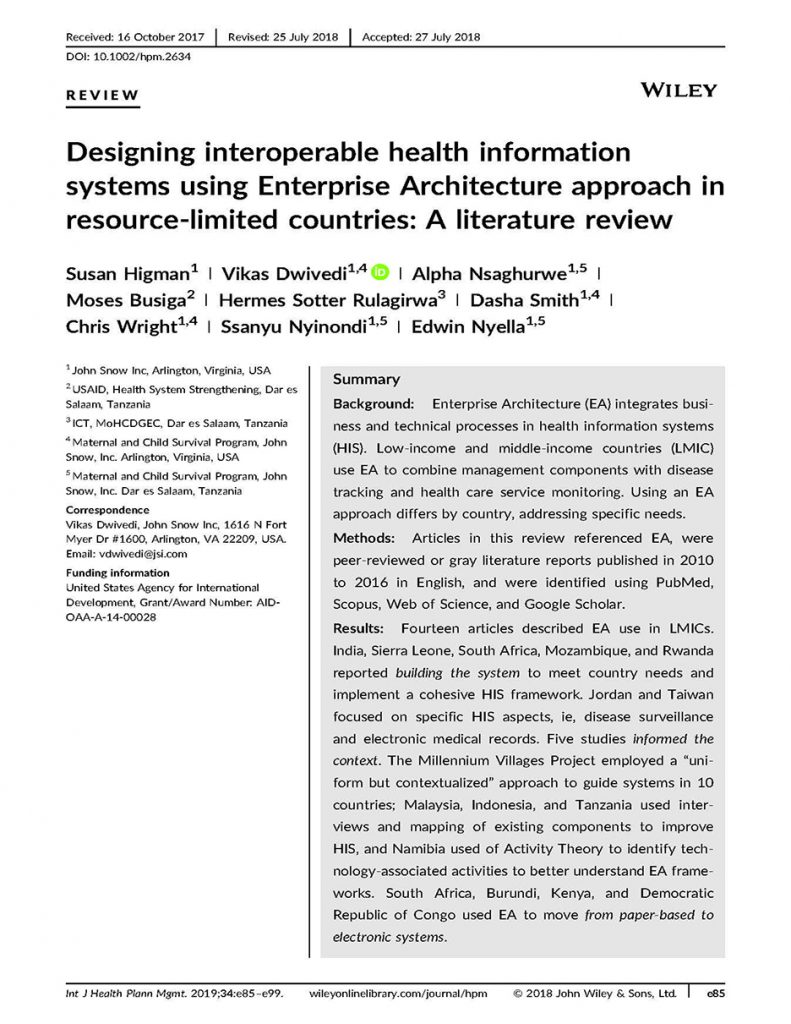
The overall goal of this literature review is to identify best practices related to Enterprise Architecture (EA)‐based health information system (HIS) design, implementation, and evaluation in low- and middle-income countries. Literature identified in this review present ways in which EA frameworks have been used to facilitate data collection, examine critical elements for effective health care […]
Read More…
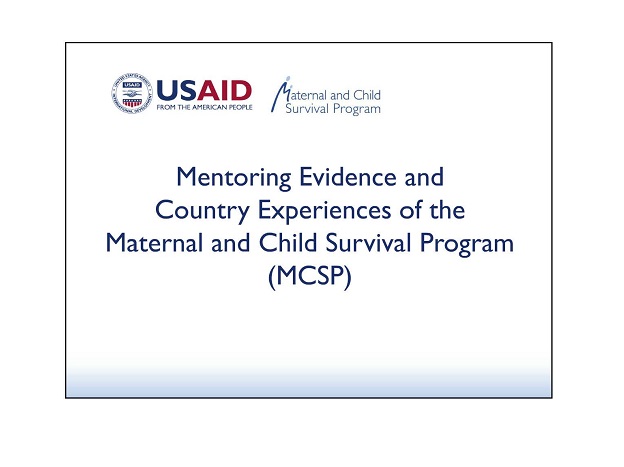
On February 28th, MCSP hosted the first of a two-part webinar series to share the Program’s global and country-level learning for human capacity development efforts. Entitled “Mentoring Implementation Lessons from Rwanda, Laos and Ethiopia,” the webinar summarized MCSP’s global guidance on mentoring based on a literature review and results from a survey of 23 countries […]
Read More…
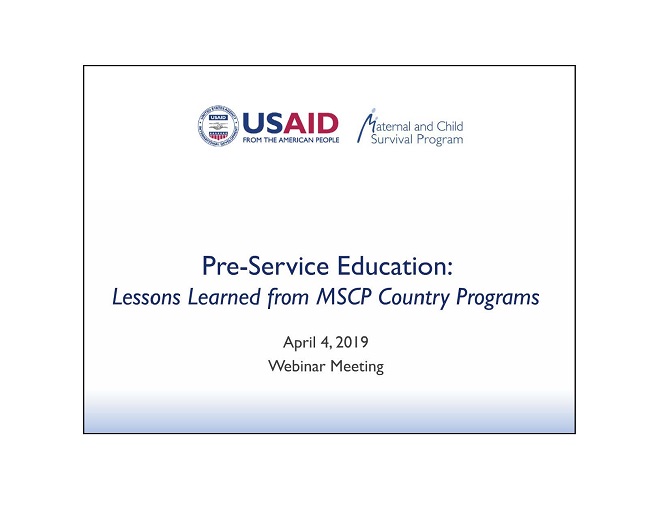
On April 4th, MCSP hosted the second of a two-part webinar series to share the Program’s global and country-level learning for human capacity development efforts. Entitled “Nothing gets transformed until your mind is transformed,” the webinar focused on transformative approaches to strengthening pre-service education strengthening in Ghana, Kenya and Liberia. Strong pre-service education systems are […]
Read More…
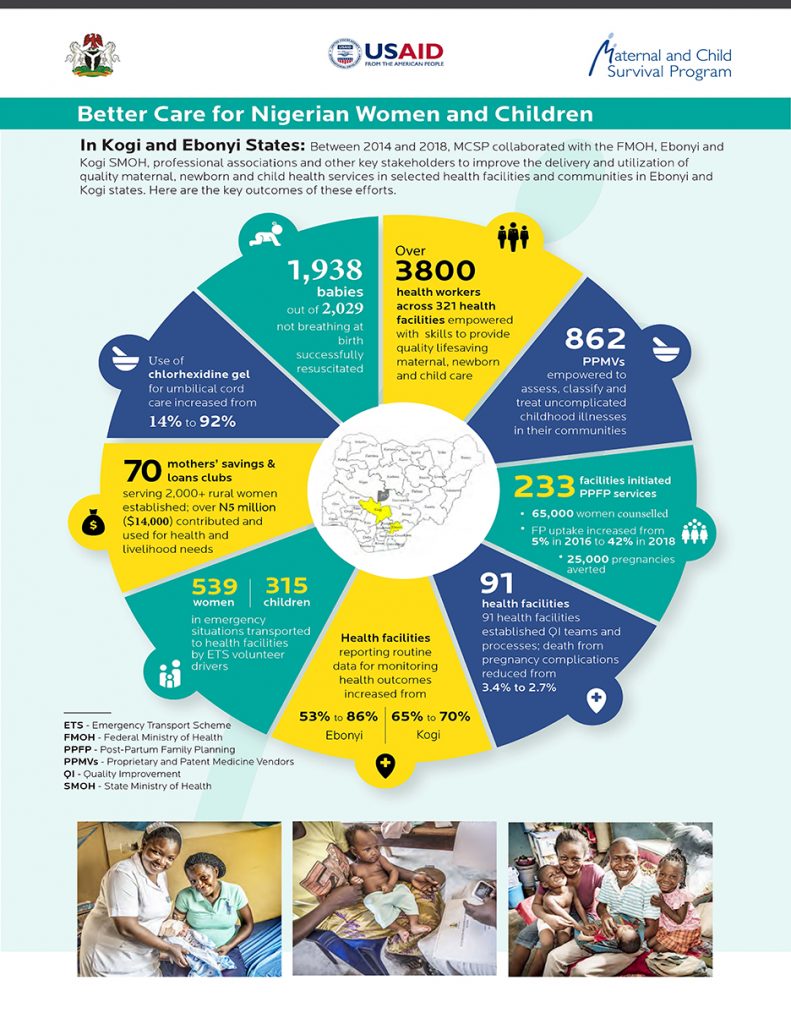
Between 2014 and 2018, MCSP collaborated with the Federal Ministry of Health (FMOH), Ebonyi and Kogi State Ministry of Health (SMOH), professional associations and other key stakeholders to improve the delivery and utilization of quality maternal, newborn and child health services in selected health facilities and communities in Ebonyi and Kogi states. […]
Read More…
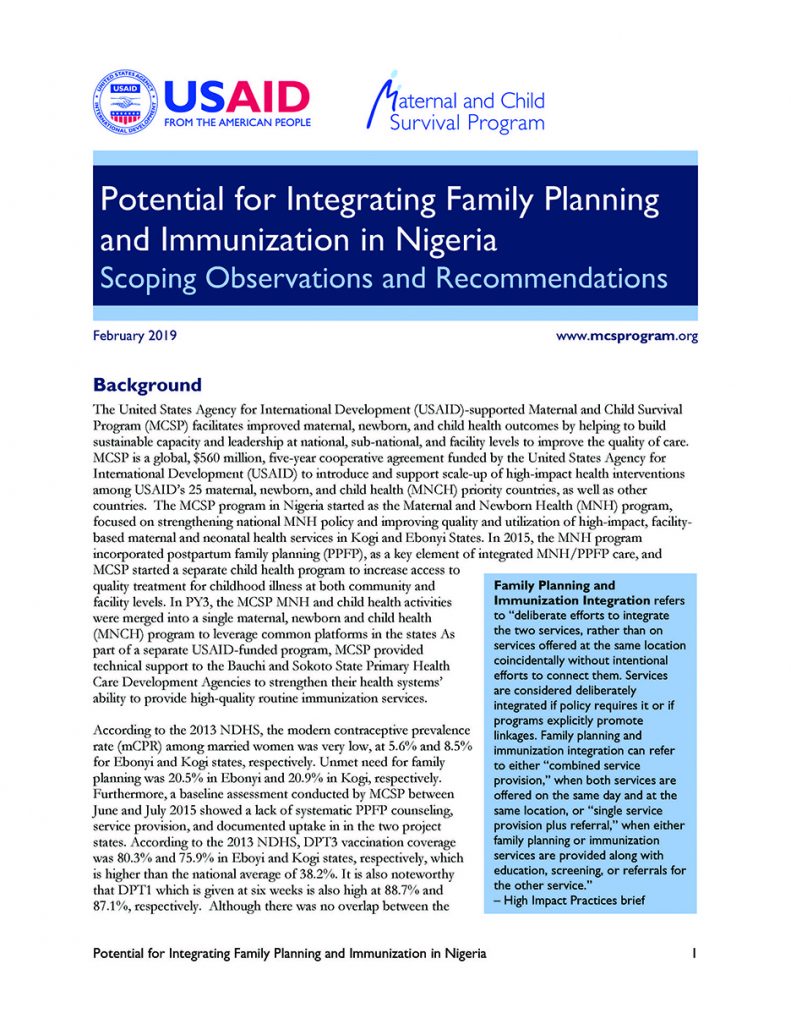
The MCSP program in Nigeria started as the Maternal and Newborn Health (MNH) program, focused on strengthening national MNH policy and improving quality and utilization of high-impact, facility-based maternal and neonatal health services in Kogi and Ebonyi States. In 2015, the MNH program incorporated postpartum family planning (PPFP), as a key element of integrated MNH/PPFP […]
Read More…
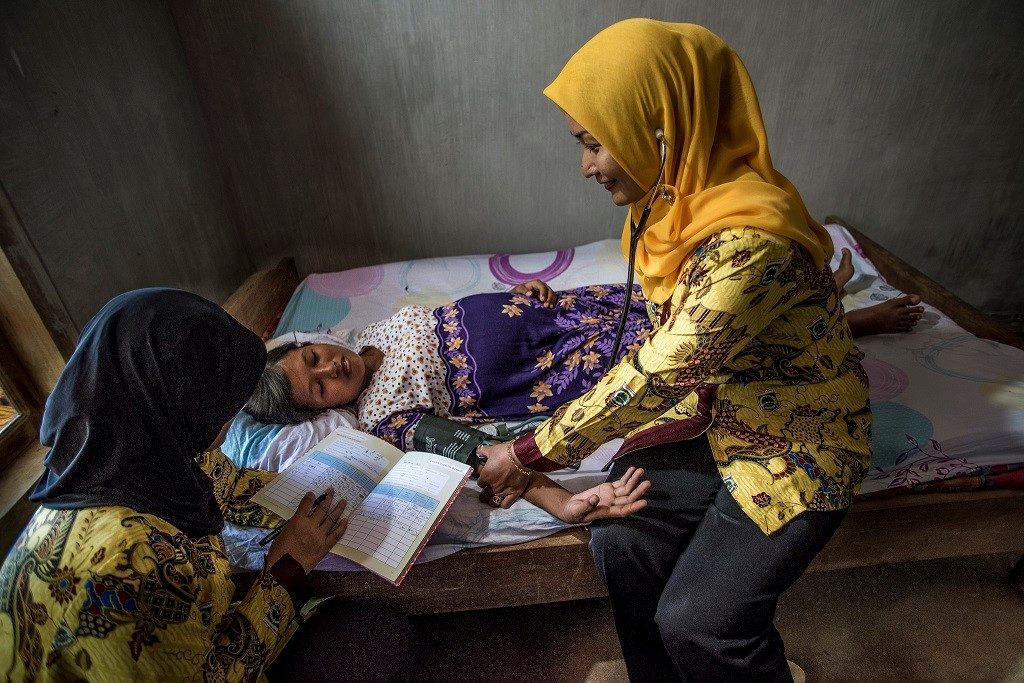
While HMIS are a rich data source, their data also frequently comes with challenges. Are there signs that the availability of key data elements is improving over time? […]
Read More…










